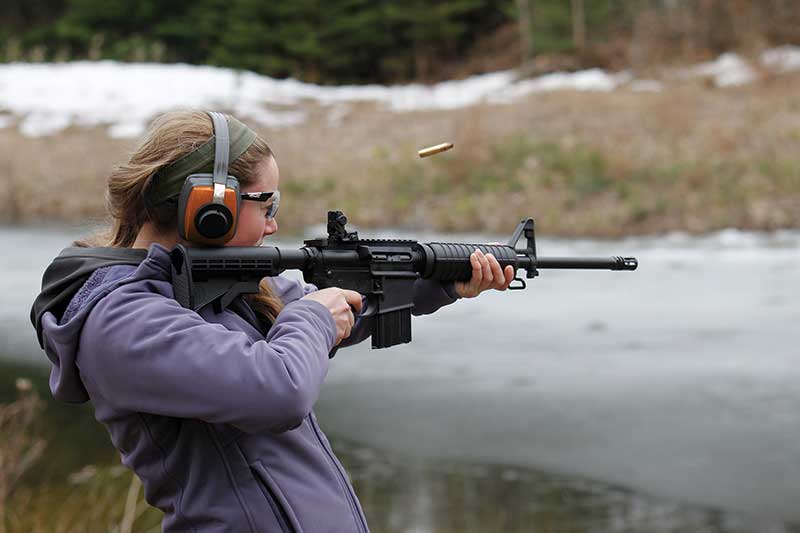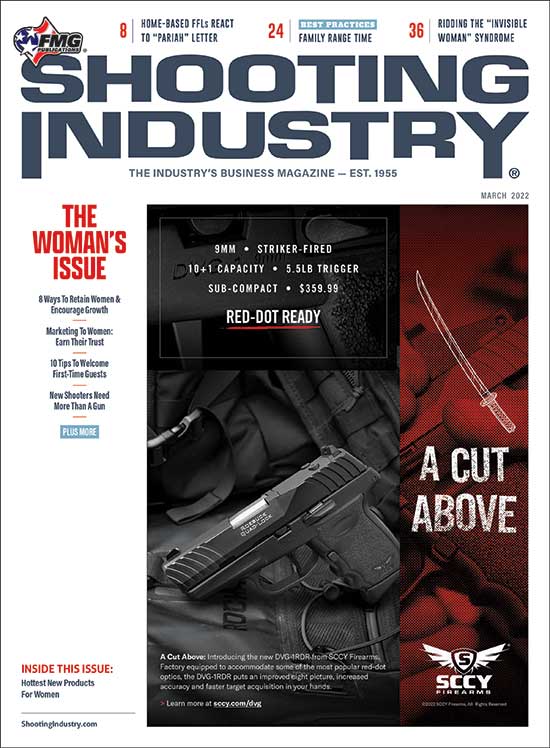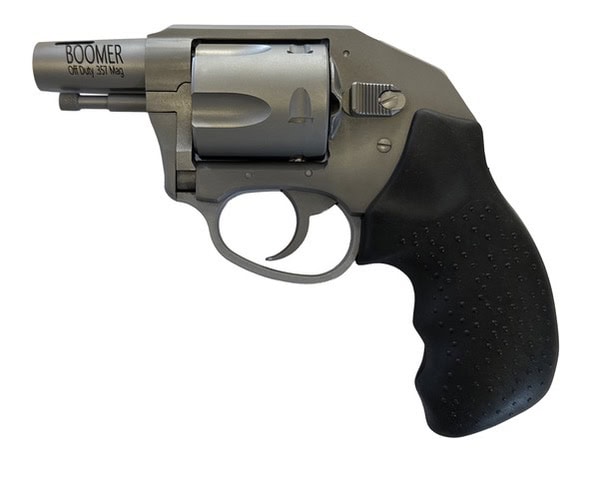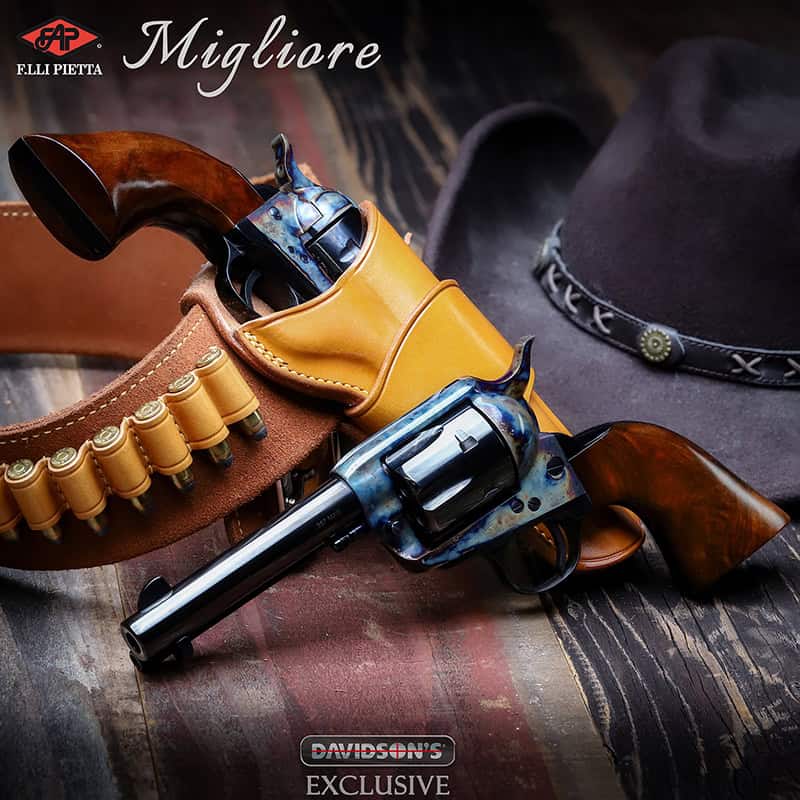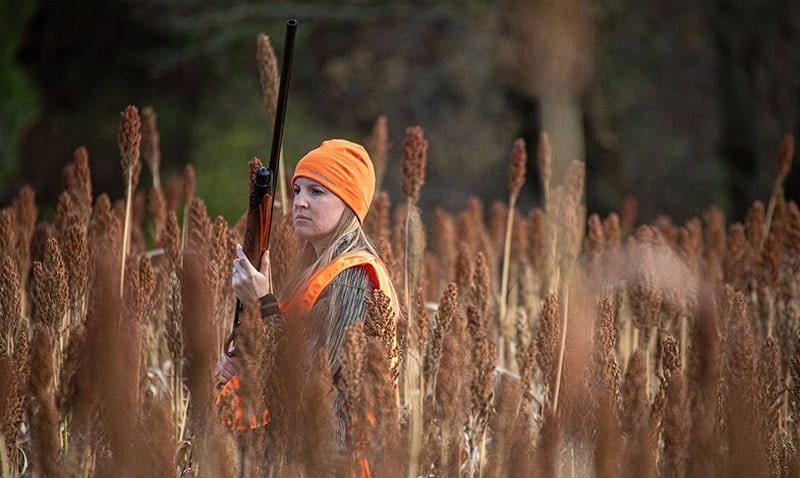Understanding Her Mindset
How To Market To Women, Earn
Their Trust & Reap The Benefits
It’s no secret the number of female gun owners is rising. However, what seems to be the plight is how gun shops keep female customers returning to the shop. There are numerous studies about marketing to women, but it’s not a straightforward approach. Gone are the days of “pink it and shrink it,” and husbands thinking a .38 Special revolver will suit all needs.
Diversity Of Women & Guns
According to a recent study from Harvard University, 42% of all gun owners are women. This means close to half of your marketplace is female. Of those women, there are numerous reasons why they own guns. If you ask women why they own a firearm, they’ll tell you it’s for self-defense, recreational shooting, competition, family traditions and hunting purposes.
Why Market To Women?
Historically, women are responsible for more than 80% of the purchasing decisions in a household. Between 2020 and 2021, more than 6 million women purchased a firearm for the first time. In addition, the A Girl & A Gun (AG & AG) women’s shooting league saw a jump in the number of women who signed up for training courses and instruction.
AG & AG conducts an annual survey of its members and recently examined the first-time gun buyer category — yielding a few key indicators of how to market to women. In the survey, AG & AG learned nearly half of the women in this group were “brand new to firearms.”
The AG & AG segment also indicated fear was their primary reason for taking up arms. The women indicated fear of riots, gun bans, increased crime, violence, discrimination and the lack of law enforcement were reasons for buying firearms. In short, these women realize they’re their own first-responders.
With the wave of women who are taking up arms, they’re a critical demographic your shop should consider in all of its marketing endeavors.
Smart Marketing
“Marketing to women is a smart move,” said Michael Solomon, a professor of marketing at Saint Joseph’s University, keynote speaker and expert on consumer behavior. “But don’t shoot first and aim later!”
Solomon is explicitly cautioning you to avoid some of the main pitfalls you’ve likely heard before when it comes to marketing to women.
First, avoid stereotyping. We’re not all the same, and our reasons for visiting your shop may not be the same either. I mentioned the many reasons women use guns and why new gun owners are buying. It’s a mistake to group women together and could likely insult the newbie or the veteran firearm owner.
Second, avoid the “pink it and shrink it” mentality. We’ve been seeing it for years; stores realize the importance of the lady customer and add smaller, pink, and sparkly items to their shelves to entice women to buy. While this may work to some degree, the assumption is a turnoff to many women willing to spend their hard-earned money on quality products.
According to Insights in Marketing, a market research company based in Chicago, you must first understand the psychology of a woman to attract her attention and her purchasing power.
Know what motivates her behavior. Does she live alone on the edge of a dangerous neighborhood or has she made friends with other women gun owners? Is she looking for empowerment or protection? Or maybe she found a new recreational activity?
Women readily share the good, the bad and the ugly of brand experiences, so work on your emotional messaging to attract them to your store and the products, classes or experiences you offer.
Understand the nuances that can lead you astray. Don’t assume she needs a 9mm because “everyone else has one.” Additionally, don’t assume she’ll know how to load a magazine or how to open a cylinder to inspect if a gun is loaded or not.
Think outside of the traditional market research box. Be there and be ready to help fill the needs of the female gun owner. If she’s an experienced gun owner, she may like to join a class (or lead one) and learn how to build an AR. Maybe she’s a newbie and would like to know there are other female gun owners in the community; let her know about clubs such as AG & AG or other women’s shooting groups.
I’ve met multiple women who’ve recommended Centennial Gun Club in Centennial, Colo., and recently stopped by for a visit. From the moment I walked in, I noticed the shop was bustling with customers. There’s plenty of room to move about with a clean, open layout, and I didn’t have to wait in line at a service counter. Although my husband lingered behind, a young associate immediately asked to help me — a far cry from experiences nearly every woman has had with an associate asking the “Are you here to buy something for your husband?” question.
Since multiple women had recommended the shop, I asked to visit with a manager or purchasing agent at Centennial as part of my research about marketing to women. As I waited, I noticed multiple women happily shopping around the store.
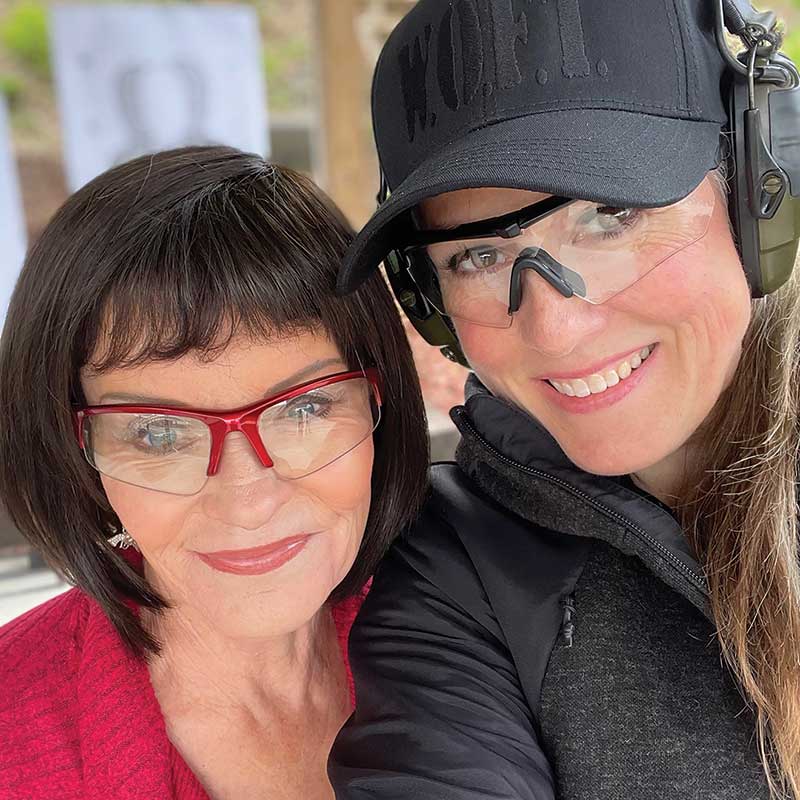
(Above) If your staff can establish trust with a prospective customer, it could create a sportswoman
who becomes a lifetime participant. Robyn Sandoval (Right) [with Coni Brooks of Barnes Bullets] advises,
“Don’t just sell to women; ask them questions.” (Below) While hosting weekly women’s events might,
at first, seem like a loss leader, they provide a non-threatening introduction to firearms ownership and training.
Ultimately, these events open up your establishment’s brand to nearly half of your prospective customer base!
Earning Their Trust
Social scientists estimate we are conscious of only about 5% of our cognitive function. The other 95% goes beyond our awareness and significantly influences our lives. For example, while I came to the store to learn more about marketing to women, I observed and experienced what a shop engaging female clientele looks and feels. Something as minimal as addressing my husband could’ve subconsciously lost my trust and been a deal-breaker.
To earn her trust and get better at marketing to women, you have to learn what is driving her behavior.
“Don’t just sell to women; ask them questions,” suggests A Girl & A Gun Executive Director Robyn Sandoval. “For example, ask about her goals, interests, lifestyle, budget, plans, needs, wants, etc.”
As your shop develops an interest in her, she’ll subconsciously find trust in your store.
During my visit, I spoke with Joey Mizufuka, Centennial’s retail sales manager, about what successful marketing to women looks like in their area. He revealed while there have been some ups and downs in the shop’s dealings with women, it was working hard to mend bridges in this segment.
Mizufuka relayed the store had, at one time, lost the trust of women’s shooting groups because it had eliminated women’s nights — only to discover how strong their demand was for training.
“The women’s classes can, at times, be a loss-leader,” he said. “With groups like A Girl & A Gun and The Well Armed Woman, we hold a monthly ladies’ night where we host 80 to 100 women who are potential customers.”
Before the store’s learning experience, they hosted up to 150 women on any given ladies’ night. However, with Centennial under new ownership, who realizes the potential client base, the store has geared back up and is hosting more women’s events.
The shop’s new owners are working to regain the trust of their female clientele.
In addition to guest speakers and appetizers on ladies’ night, Centennial chooses to waive range fees and provides free rentals as an incentive to bring women through the door. In addition, the gun club is stocking quality women’s accessories. The women are happy with the choices and share the good news with others.
Marketing Ideas
Women readily adopt technology, so by all means, use social media platforms for your marketing. Work to curate a “tribe” of women who support your shop. Studies show 92% of women pass along information about deals, and 76% want to be part of unique panels or groups.
Think outside of the traditional market research box. Be there and be ready to help fill the needs of the female gun owner.
Women readily share the good, the bad and the ugly of brand experiences, so work on your emotional messaging to attract them to your store and the products, classes or experiences you offer. Once you have their attention and loyalty, they’ll readily boast as brand advocates on your behalf. Follow guidelines as social media platforms require, but enlist your tribe to comment on posts, share surveys or promote upcoming events.
Understanding Her Mindset
While you’re working to understand how to market to women, you must know the different mindsets of women. According to Insights, five categories stand out to help better understand womens’ purchasing views.
1. Achievement & Impression Oriented: These women are do-it-all women who lead busy lives and carefully manage their to-do lists. She’s status-oriented and will be attracted to new, improved or high-quality products.
2. Conservative: These women focus on traditions and family. She spends carefully and will be attracted to good products for her family or her home.
3. Predictable: These women follow routines and may seem rigid or inflexible, but their practice helps maintain balance and minimize stress. She’ll weigh the benefits and trade-offs, and look for the value in all of her purchases.
4. Stressed: These women work to keep up with the momentum of life and have learned there are no safety nets. She’s her own first responder. She may need affirmations from others to feel good about herself. She will splurge, but not wastefully; her money matters.
5. Experience Junkie: These women want to see and try it all. She’s looking to savor everything in life. She’s open to trying and buying, but she’s easily distracted, so you’ll need to vie for her attention.
As you begin to understand what motivates her, you’ll more readily add her to your marketing plan. Your shop may have more or less women from one category or another, but the bottom line is you must get to know your customers who are women in order to properly market to them.
Mia Anstine is the founder of MAC Outdoors, licensed outfitter, hunting guide, life coach, keynote speaker and a range safety officer, firearms instructor and archery instructor.

